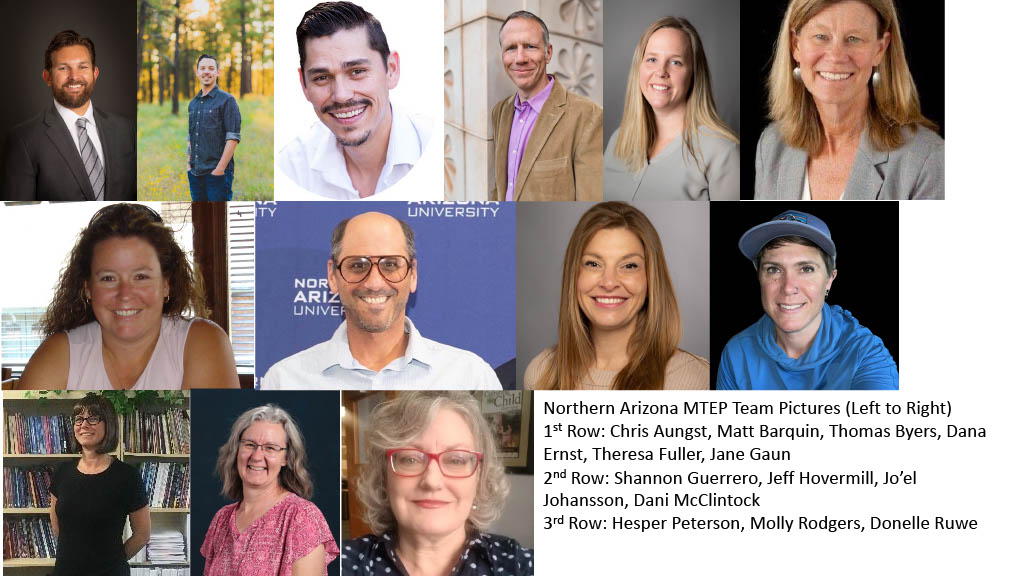
We are excited to welcome the new Northern Arizona team to the MTEP network. The team is currently a partnership between Northern Arizona University (NAU) and several Northern Arizona school districts.
The team and campus leader is Jeffrey Hovermill, NAU associate professor of mathematics education. Team members include faculty from the NAU Department of Mathematics and Statistics (Shannon Guerrero, professor of mathematics education, and Dana Ernst, associate professor) and the NAU College of Education (Donelle Ruew, associate dean; Jo’el Johanson, associate teaching professor; Theresa Fuller, assistant clinical professor; and Chris Aungst, professional education programs academic support director). The team also includes teachers and administrators from Flagstaff United School District (Jane Gaun, K-12 math coordinator; Matt Barquin, Flagstaff High School assistant principal; Thomas Byers, Northland Preparatory Academy dean of faculty; and Northern Arizona middle/secondary grade mathematics department chairs/teachers Dani McClintock, Hesper Peterson, and Molly Rogers).
Team Northern Arizona aims to create diverse partnerships that collaboratively improve STEM teaching and learning. Specifically, the team’s current drivers focus on increasing the quantity and diversity of secondary mathematics teachers recruited to and supported through their programs, expanding and improving mathematics education partnerships with schools and districts, and infusing more diversity, equity, inclusion, and justice content throughout their mathematics education programs.
Team leader Hovermill said, “Our team has been energized by the ways that participation in MTEP provides opportunity and support for multiple stakeholders to come together to plan, take action, and study how to collaboratively improve STEM education in their region.”
If your team is interested in joining the MTEP 2.0 network, see the Membership Toolkit for information about the application process.